SUMMARY
This is AI generated summarization, which may have errors. For context, always refer to the full article.
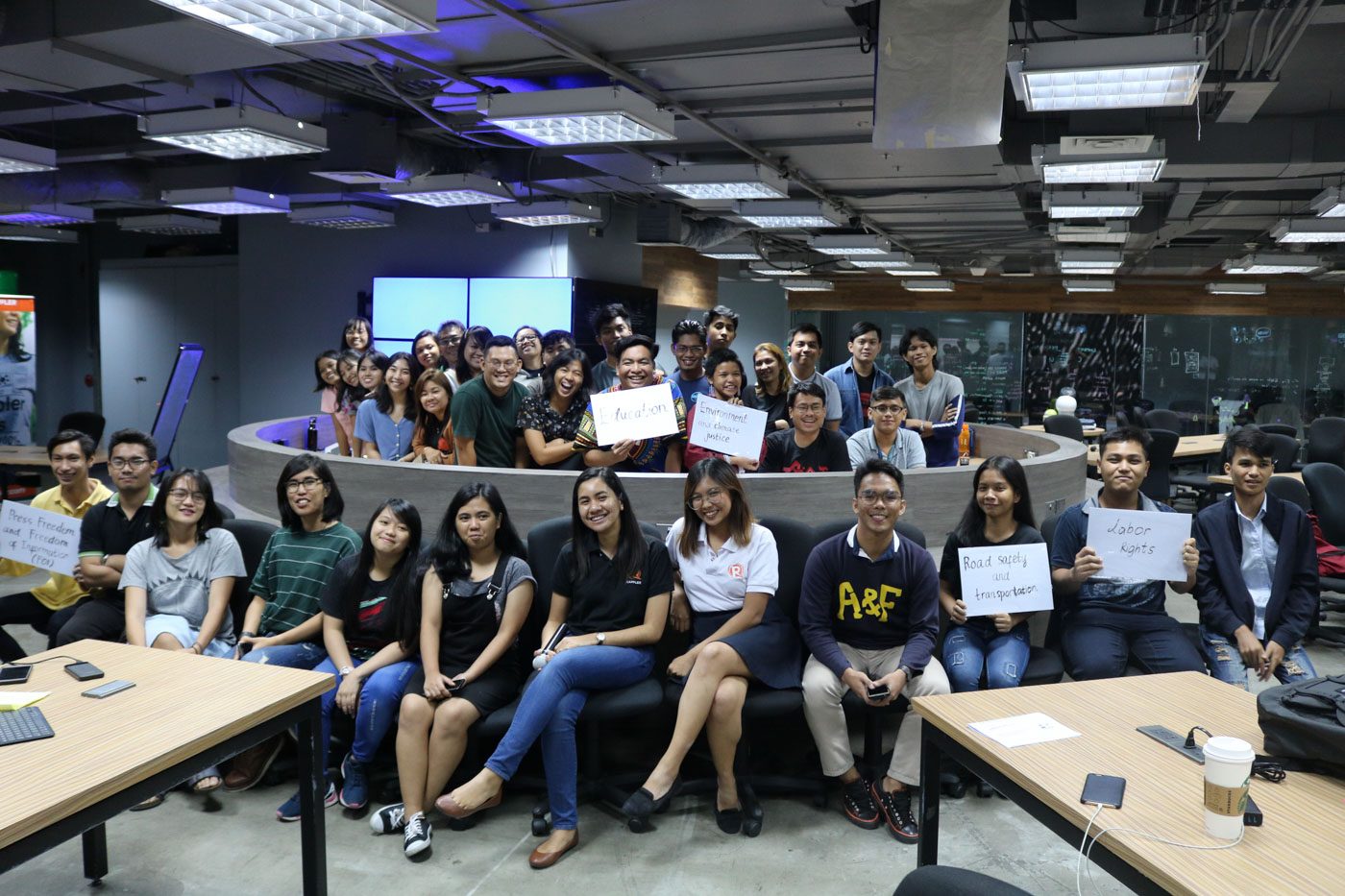
MANILA, Philippines – Ahead of President Rodrigo Duterte’s 4th State of the Nation Address (SONA), more than 40 students and advocates discussed their visions for the Philippines in “Move Huddle: SO ano NA?” on Saturday, July 20.
The SONA Huddle was organized by MovePH, Rappler’s civic engagement arm, in partnership with Dakila, an organization building a movement of modern heroism.
While discussing visions for the Philippines in the next 3 years, participants tackled the important role that citizens play in creating change in society.
Suggestions included unity through “active citizenship,” such as joining advocacy groups for collective action, lobbying for “progressive laws,” and informing other people “through simple conversations.”
Polytechnic University of the Philippines (PUP) student Reinier Jan San Gabriel emphasized the need for collaborative action among the youth and sectoral groups.
“Tayong mga mulat at progresibong mga indibidwal ay magsama-sama tungo sa pag-enhance ng ating mga skills, kung saan mas may magagawa pa tayo, and [demand] better living standards to uplift those who are below the poverty line,“ San Gabriel said.
(We, the enlightened and progressive individuals, must unite towards the enhancement of our skills, where we can make a difference, and [demand] better living standards to uplift those who are below the poverty line.)
This was echoed by Rob Julian Maghinang. He suggested that people “form groups” and “call [legislators] to write progressive laws.”
“We don’t want just one person to talk about something…maliban na lang siguro kung bilyonaryo ka, kakausapin ka niyan (unless you’re rich, [legislators] won’t talk to you),” Maghinang said.
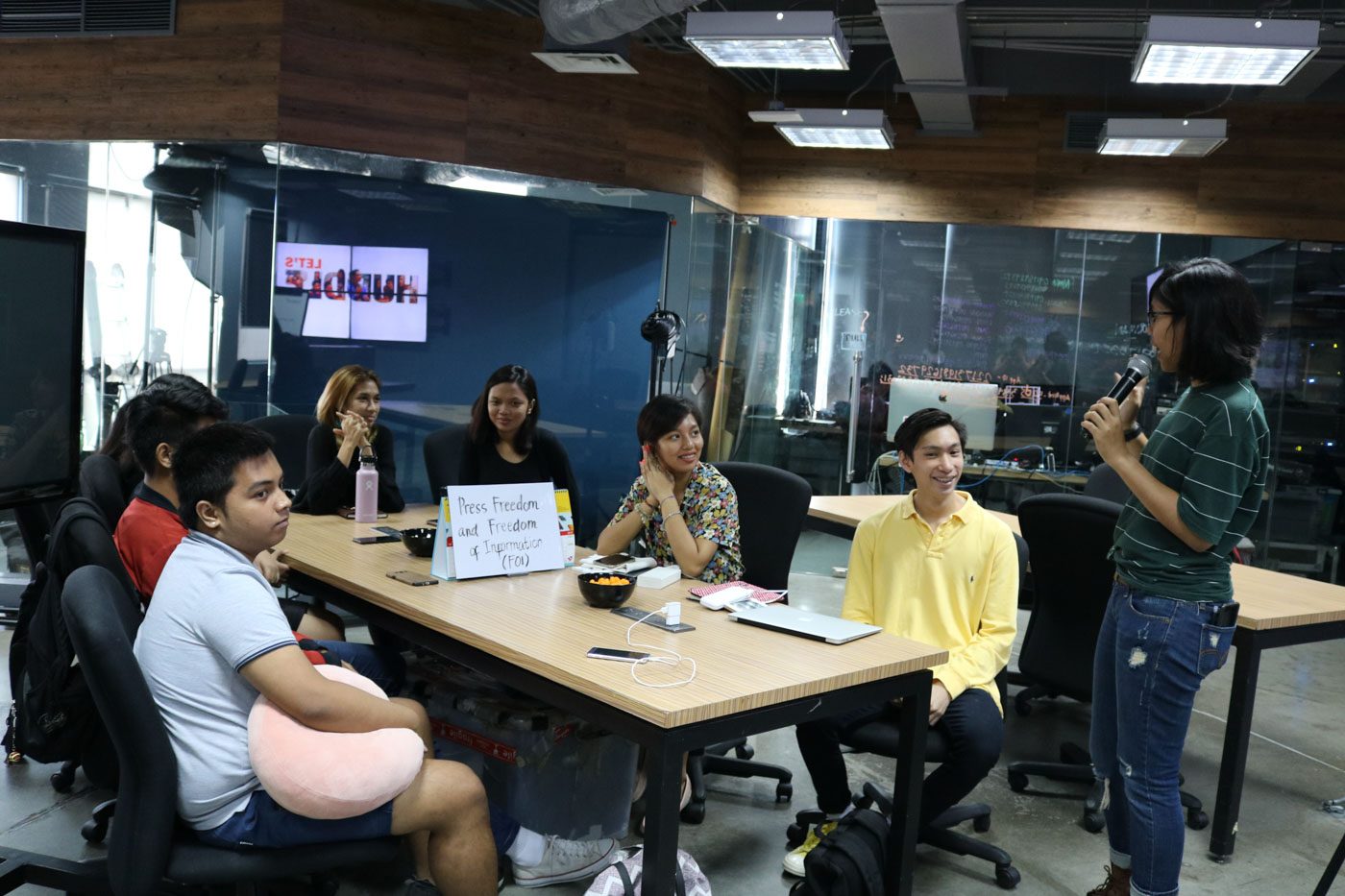
Kristiene Nathaniel Miranda of University of the Philippines Alyansa ng mga Mag-aaral para sa Panlipunang Katwiran at Kaunlaran reminded everyone that despite people’s alliances, the fight will always be for the people.
“Lagi nating tatandaan na ‘yung mga ‘pinaglalaban natin ay para sa masa at para sa bayan (We must remember that we fight for the masses and for our country),” Miranda said.
Mood Meter, insights on issues
Educating the youth and other sectors of society on social and political issues was among the most mentioned plans for the next 3 years.
During the SONA Huddle, the reactions of the youth and advocates on statistics and facts related to issues such as press freedom, gender equality, climate justice, road safety, labor rights, and education were determined using the Rappler Mood Meter.
The audience was generally “angry” over the deaths of 12 media practitioners and 128 reported attacks and threats against journalists during the Duterte presidency. (READ: Over 100 attacks vs journalists since Duterte assumed office – monitor)
The Philippines was dubbed the deadliest peacetime country for journalists in Southeast Asia, according to a 2018 report published by the International Federation of Journalists.
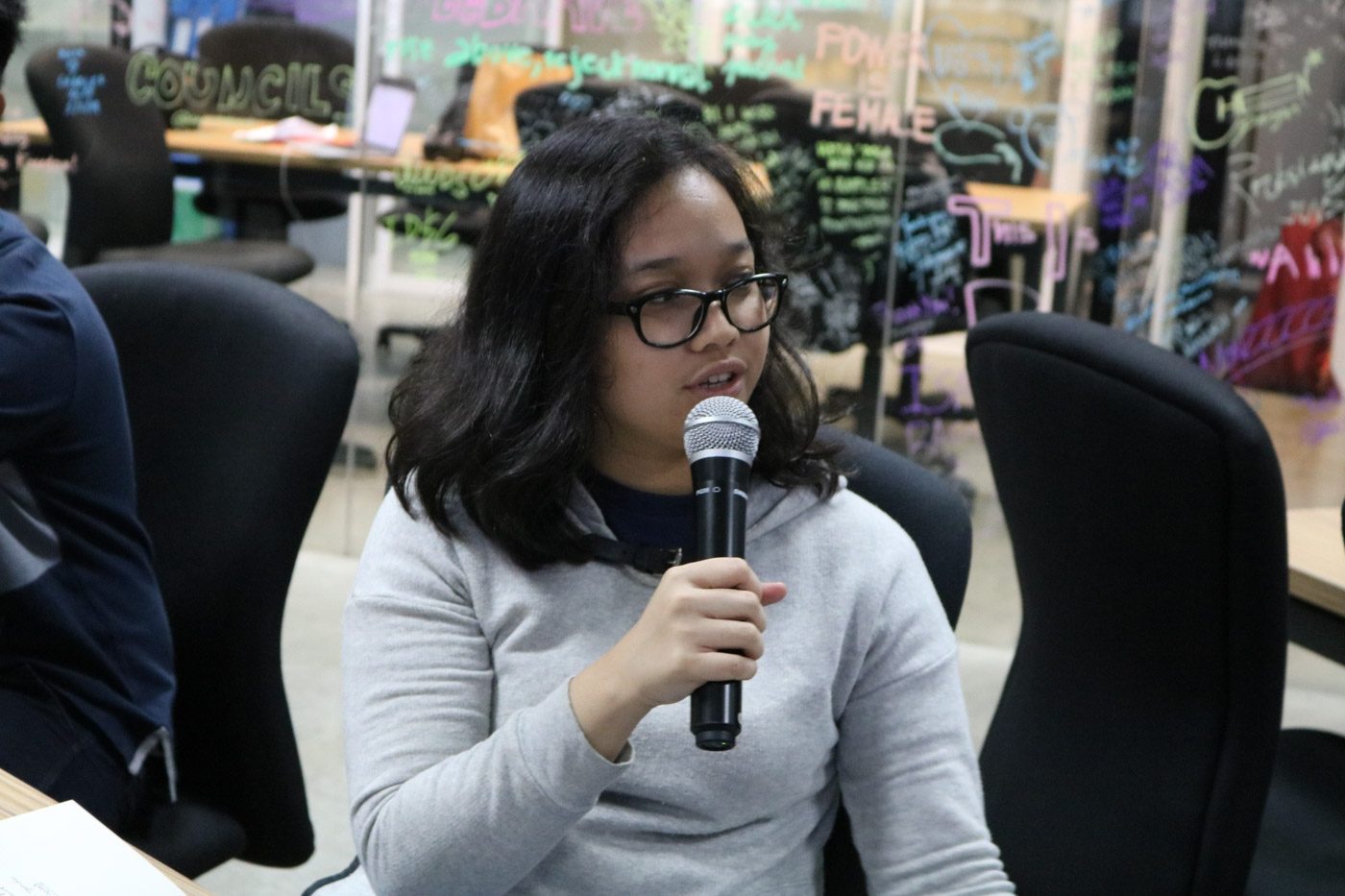
On the issue of press freedom, Bea Orante from Dakila noted that it is more difficult for consumers to “hear news that is more impactful” because they are “being bombarded by disinformation campaigns.”
“If you’re not aware of media disinformation tactics, you’re more likely to buy into what propaganda is trying to sell you,” she said.
Orante added that disinformation also affects society’s attitudes towards practicing active democracy.
“It’s harder to be empowered if you’re not getting the right information,” she said.
Although Huddle participants were “happy” about the 70,000 people who marched in the Metro Manila Pride Parade, Patricia Daloria of Dakila expressed her concern about the commodification of lesbian, gay, bisexual, transgender, and queer (LGBTQ+) symbols.
“‘Yung ginagawa kasi sa LGBTQ+ community, parang nagiging capitalism na rin kasi there are a lot of stores na, ‘Ay, pumasok na ‘yung Pride March, sige magbenta tayo ng rainbow-themed shirts.’ ‘Yung monopoly na ito, ginagawa ba to support the LGBTQ+ community o para lang pagkakitaan?” Daloria said.
(What’s being done to the LGBTQ+ community is similar to capitalism because there’s a lot of stores that go, “Oh, Pride March celebrations are near, let’s sell rainbow-themed shirts.” Is this monopoly being done to support the LGBTQ+ community or just to make profit?)
Almost everyone said they were “inspired” by the youth sector’s efforts to campaign for a coal-free Negros, but a lone participant was saddened by the fact that the youth had to conduct rallies just to be heard. (READ: Youth, advocates continue fight for coal-free Negros amid new leadership)
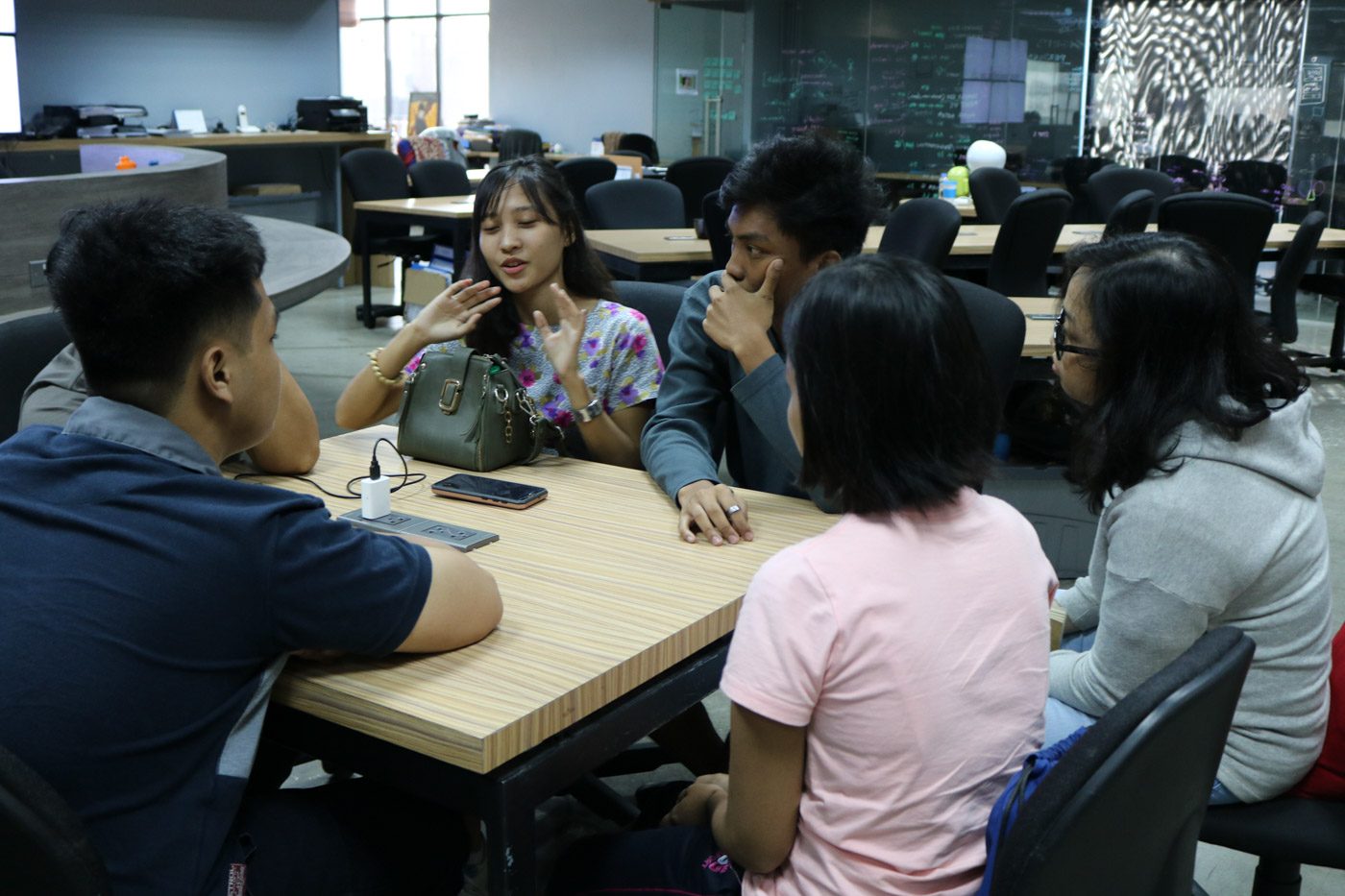
“Dapat ang gobyerno ay nakikinig or dapat they are aiming para sa protection ng environment natin at ng mga taong nakikinabang dito,” said Neilvin John Aventurado from the PUP College of Communication Student Council.
(The government should be listening or they should be aiming for the protection of our environment and the people who benefit from it.)
Visions for the Philippines in 2022
The huddle wasn’t just about discussions; participants were also asked to form groups of 5 and create a three-year plan to address current issues in the Philippines.
There were suggestions per sector, such as those on improving urban planning and modernizing public utility vehicles to improve transportation; defending the Philippines’ sovereignty in the West Philippine Sea through diplomatic means; and addressing the nation’s drug problem as a health issue.
There were also recommendations to end contractualization and pass laws for gender equality.
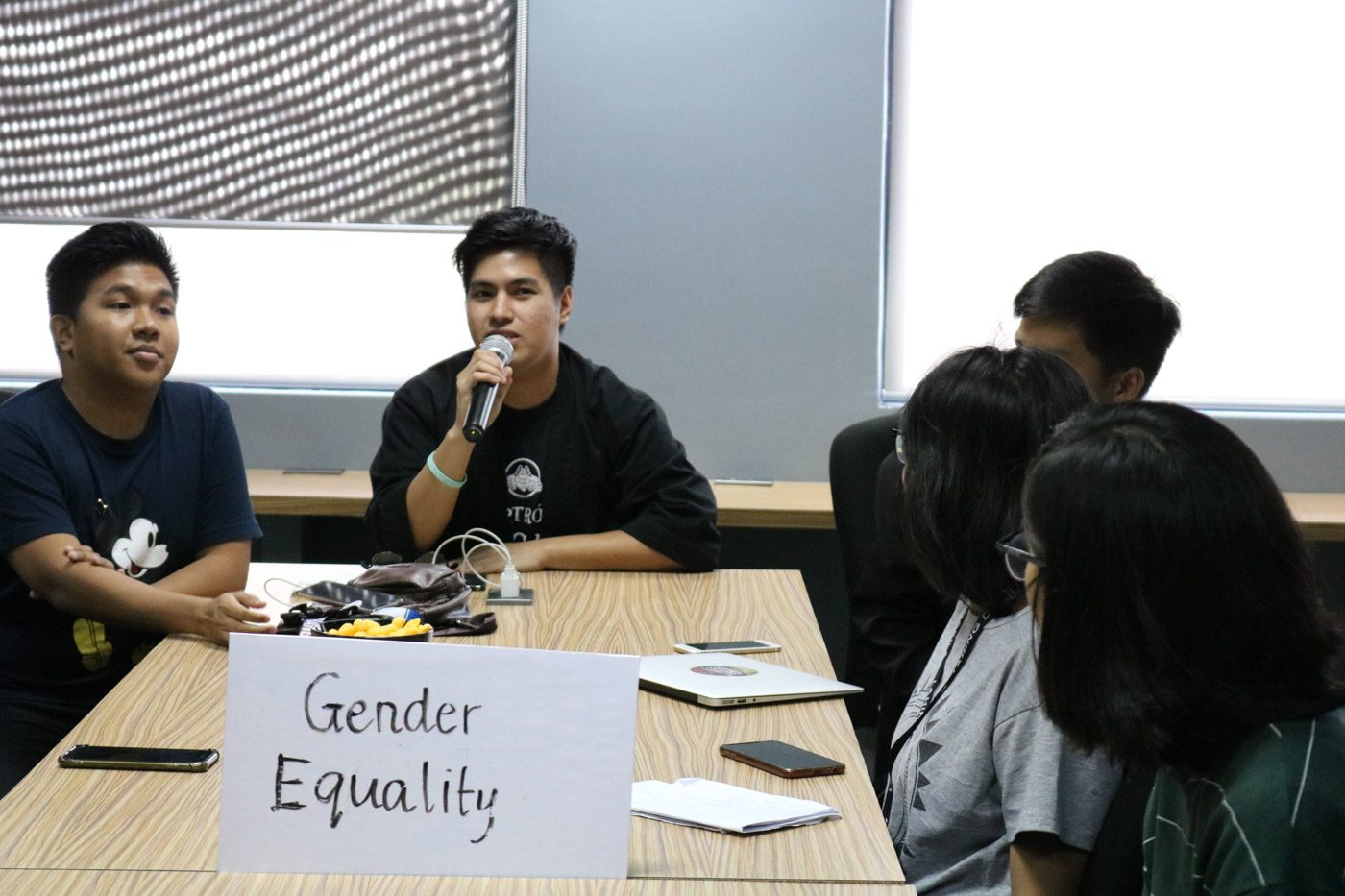
The huddle ended on a positive note, as they each described in one word their hopes for the state of the nation after 3 years. They wished that the Philippines would be united, progressive, inclusive, and free by 2022. – Rappler.com
Enrico Berdos is a Rappler intern. He studies journalism at the University of the Philippines Diliman.
For highlights of President Duterte’s 4th SONA, check out our live blog.
For related stories, visit Rappler’s 2019 State of the Nation Address page.
Rappler takes a deeper look at the first half of Rodrigo Duterte’s presidency – its highs and lows, its achievements and shortcomings:
Duterte Year 3: The Halfway Mark
Add a comment
How does this make you feel?
There are no comments yet. Add your comment to start the conversation.